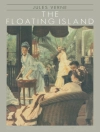In ‘The Contrast, ‘ Royall Tyler offers a sophisticated exploration of early American society through the lens of comedy and social commentary. Set against the burgeoning backdrop of the United States post-independence, the play ingeniously juxtaposes the character types of the refined, cosmopolitan individual with that of the rustic, unpolished American. Tyler’s sharp wit and clever dialogue evoke the theatrical styles of European comedy while simultaneously embedding distinctly American themes, such as identity, virtue, and the tension between old-world customs and new-world ideals. The blend of humor and earnest critique reflects the literary context of the 18th century, where early American writers began to forge a unique national identity in literature, influenced by both Enlightenment ideals and the nascent American spirit. Royall Tyler, a figure both as a playwright and an accomplished critic, drew upon his extensive education and experiences in America’s emerging cultural landscape to craft this notable work. His background in law and his engagement with the sociopolitical currents of his time informed his portrayal of the American citizen’s predicament, encapsulating the growing pains of a young nation grappling with its values and aspirations. Enthusiasts of American literature and theatre will find ‘The Contrast’ to be an essential text, illuminating the complexities of early American identity while providing enduring insights into human character. Tyler’s blend of humor and critique not only entertains but also serves as a lens through which readers can examine the evolution of American societal norms. This play is a critical addition to any literary collection, promising rich discussions on the intersection of comedy and national identity.
Circa l’autore
Royall Tyler (1757–1826) was an accomplished American playwright, jurist, and writer regarded as a pivotal figure in the early development of American theater. Born into a wealthy family in Boston, Massachusetts, Tyler pursued legal studies, graduating from Harvard College in 1776. His experiences during and after the American Revolution, including service in the military, deeply influenced his writing and world view.
Tyler’s contribution to American Literature is most notably marked by his play ‘The Contrast’ (1787), which holds the distinction of being the first American comedy to be professionally staged. ‘The Contrast’ not only mirrored the societal shifts in post-revolutionary America but also introduced the character of ‘Brother Jonathan’, a predecessor to the iconic ‘Uncle Sam’ and an embodiment of American patriotism and simplicity. The work is celebrated for its satirical depiction of contemporary manners and its candid exploration of American identity in contrast to European influence. Focused on moral didacticism, his literary style blended humor with a sharp critique of the early Republic’s cosmopolitan pretensions.
Apart from his contributions to theater, Tyler was an accomplished lawyer, serving as Chief Justice of the Vermont Supreme Court. His multifaceted life and works remain a point of reference for scholars interested in the formative years of the United States’ cultural and legal history, offering insights into the interplay between law, society, and the arts during the formative period of American national identity.












